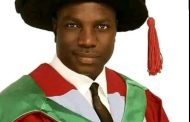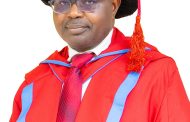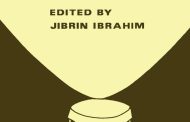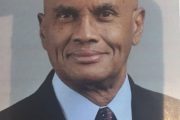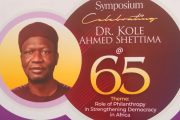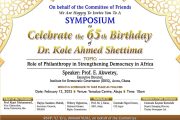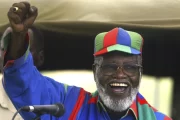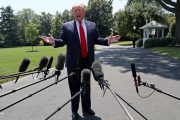Prof Maurice Iwu who, as Chairman of INEC, conducted an election whose winner, the late Umaru Musa Yar’Adua, was also its harshest critic delivered a lecture at the Department of Political Science at the University of Ibadan on April 15th, 2008. His title for the lecture is “The April 2007 Elections in Nigeria: What Went Right?” He said so many things there but only one or two paragraphs from the text would be necessary here.
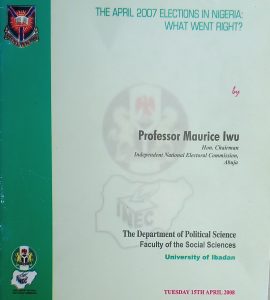 “The pressure on the system was compounded by the emergence of a class of super rich citizens under the prolonged reign of military dictatorship. This category of the new rich obviously has no regard for such apparently belittling doctrine as equality of all citizens. Nor do they have patience for such measured processes as democracy carries along. … And so with a combination of stupendous wealth, limitless access to authority and influence which literally placed them above the law, Nigeria’s later day politicians are at once a threat to such fundamental ingredient of democracy as electoral contests. It is not difficult to see the root of electoral problems in Nigeria. The prospects of a big man politician failing to clinch the office of his heart’s desire is simply inconceivable to him and so almost always there is a resort to extraordinary measures to ensure victory at all costs… With every wealthy and influential politician having a battery of well armed security guards around him round the clock, the capacity to intimidate political opponents and unleash violence is ever present. At the same time the likelihood of restraining such a citizen from conducts that are outside the orbit of law is highly reduced”.
“The pressure on the system was compounded by the emergence of a class of super rich citizens under the prolonged reign of military dictatorship. This category of the new rich obviously has no regard for such apparently belittling doctrine as equality of all citizens. Nor do they have patience for such measured processes as democracy carries along. … And so with a combination of stupendous wealth, limitless access to authority and influence which literally placed them above the law, Nigeria’s later day politicians are at once a threat to such fundamental ingredient of democracy as electoral contests. It is not difficult to see the root of electoral problems in Nigeria. The prospects of a big man politician failing to clinch the office of his heart’s desire is simply inconceivable to him and so almost always there is a resort to extraordinary measures to ensure victory at all costs… With every wealthy and influential politician having a battery of well armed security guards around him round the clock, the capacity to intimidate political opponents and unleash violence is ever present. At the same time the likelihood of restraining such a citizen from conducts that are outside the orbit of law is highly reduced”.
As problematic as elections have been in the history of Nigeria, think tanks devoted to researching and strategic thinking beyond taken for granted meanings and practices have remained rare. Although elections and electoral politics form part of the academic program of Departments of Political Science and related fields in the academy, it does not challenge the assertion.
Well, now there is The Electoral Hub (E-Hub) in Nigeria, a multidisciplinary strategic think-tank which seeks to provide solutions to improve the credibility and integrity of the electoral process. A project of the Initiative for Research, Innovation and Advocacy in Development (IRIAD), its masterminds say it is conceptualized to complement the roles and activities of the different institutions, stakeholders and drivers of the electoral process and governance. “E-Hub’s aim is to strengthen electoral governance and accountability in Nigeria through the provision of data and critical analysis supporting the credibility and integrity of the electoral process”, said Princess Hamman-Obels, Team Lead for E-Hub in a statement.
.E-Hub is anchoring its direction on two beliefs of its drivers. One is in how the integrity of the electoral process is to improving the electoral governance architecture and democracy in Nigeria and, two, in contextual analysis for solutions rooted in the principles of justice and equity. But the Hub’s core values are listed as knowledge-exchange, inclusion, justice, equity, transparency and accountability.
It is already thinking, for example, on how Covid-19 would impact on the conduct of the impending elections in Edo and Osun states, considering that while over fifty-one (51) countries have delayed their national or regional elections while about eighteen (18) have continued with their elections as planned across the world. It has tried to compartmentalize options and alternations in a readable publication.
Similarly but in a different publication, it is stressing the case for a more proactive National Assembly as far as law making is concerned. This is argued in relation to Pew Research Center’s findings in a recent survey of global attitudes towards democracy showing dwindling trust in institutions and the ruling class even as the survey also
revealed popular belief that voting allows some public influence on how the government is constituted and, by extension, run. Hence the point about proactive legislation, with particular reference to keeping to the electoral calendar vis-à-vis legitimacy of democratic institutions and the democratic order.
All two publications are in tandem with its ambition to identify gaps and proffer innovative strategies and solutions to stakeholders while emphasizing the roles of each stakeholder of the electoral process, to quote the statement. That way, the emergent E-Hub hopes to “curate electoral knowledge and serve as a data bank of electoral records and analysis to all other electoral stakeholders and citizens at large”. The implication is a focus on emphasizing the role of the different stakeholders and their responsibilities in ensuring quality electoral process and elections towards promoting collaborations and partnerships.
If all these go according to plan, then Nigeria’s Independent National Electoral Commission, (INEC) might be the earliest beneficiaries of the rise of E-Hub as the works of the think tank achieves better understanding about and around the process as it relates to collective responsibility of electoral stakeholders in ensuring electoral success and thereby reduce the pressure on INEC, the whipped boy over electoral stalemates.
One question that critics might pose to E-Hub is the extent to which it has considered the extraordinary context of elections in Nigeria, historically but also very recently as in the portrait painted by a former INEC Chairman at the opening of this piece.




